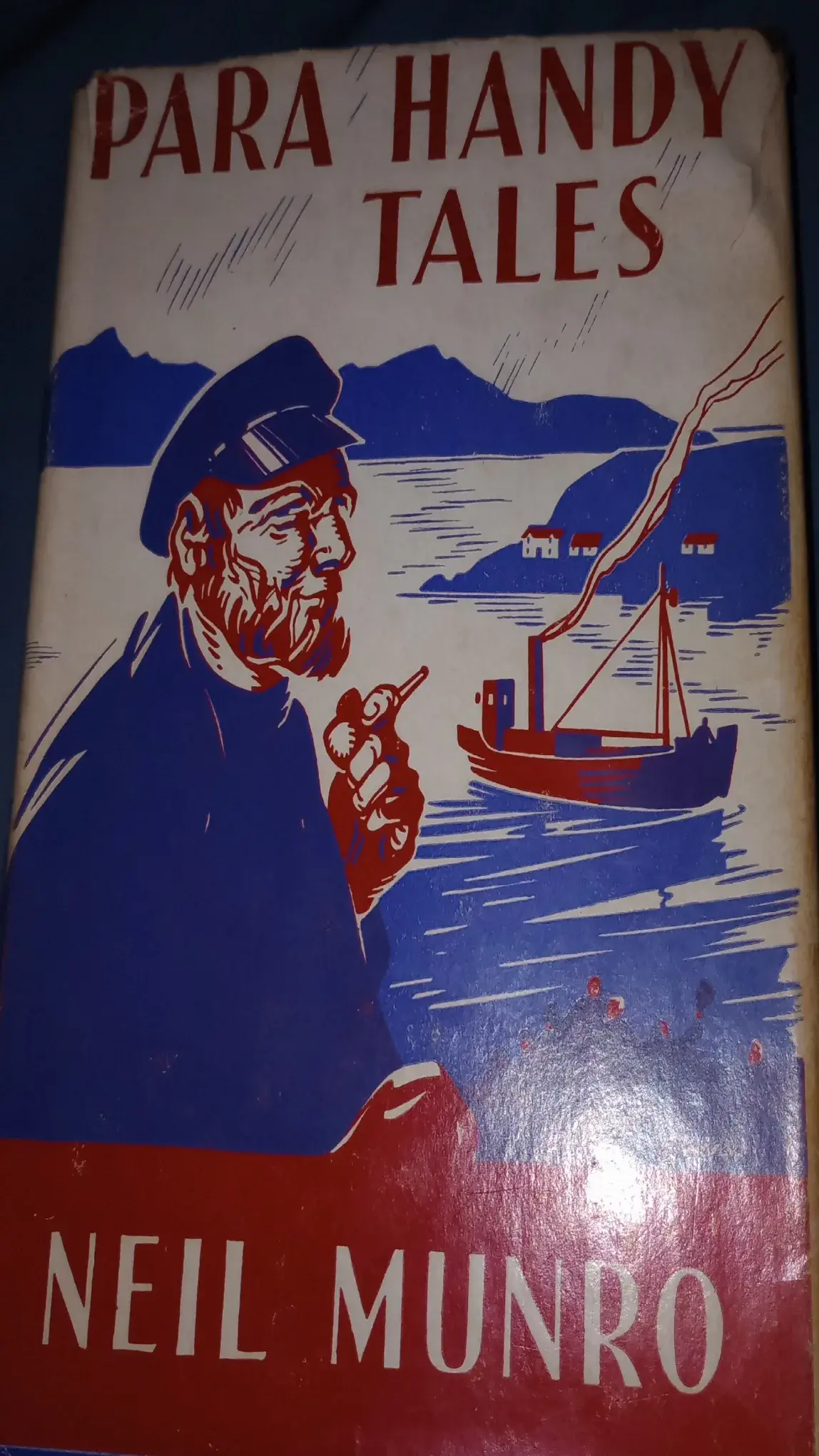Logline
Captain Pike and his crew welcome a Klingon defector aboard the USS Enterprise, but his presence triggers the revelation of some shocking secrets.
Written by Davy Perez
Directed by Jeff Byrd
2x07: Wacky crossover with the comedy cartoon!
2x08: WAR IS HELL, NOBODY IS INNOCENT, MORALITY IS GREY, FORGIVENESS IS QUESTIONABLE, AND THE FRIENDLY DOCTOR MAY OR MAY NOT HAVE DELIBERATELY KILLED A GUY IN COLD BLOOD
2x09: Musical!
Find you a show that can do both.
Buffy
Mom
Once more with feelingStargate
Wormhole Xtreme
The tombBut yeah had to go quite far back
Edit also how could I forget what seems an inspiration of this episode M*A*S*H
Edit also how could I forget what seems an inspiration of this episode MAS*H
Yes, definitely had a MASH vibe.
More MASH the movie than the show, at least not the early seasons.
@Continuumguy @startrek But in its serious mode, without the wacky anti-authoritarian hijinks.
The laugh-track-less bits in late-stage MASH.
Or Farscape, which sometimes did both in the same episode. Teen Titans could pull it off in a kid-friendly format, too, along with ATLA.
🎵 Through early morning fog I see
Visions of the things to be
The pains that are withheld for me
I realize and I can seeeeeee… 🎵
So… I have loved this entire season but I am not sure about this one.
I’m a vet with PTSD, and I’ll preface my upcoming comments by simply stating that maybe it hit close to home and made me uncomfortable. Maybe dealing with those feelings clouded my perception of the episode. However, the TNG and DS9 episodes dealing with PTSD are some of my favorite and are actually therapeutic for me, so maybe that’s not the case.
Ultimately, the message was dour and I resent it a little since it implies that there isn’t any healing that can occur from this type of trauma, which I believe is completely false. Sure, there might not be any healing for M’Benga as a character, but the thematic message of the episode implied some stuff I’m not really a fan of.
Furthermore, how is Pike supposed to operate as a Captain after both M’Benga and Chapel have committed conspiracy to cover up a murder? I think I will just have to head-canon this episode way. It’ll join “Sons of Mogh” as an episode I just pretend never happened.
I’m fine with a bit of moral ambiguity in Star Trek. But I think this episode crossed a line. Hopefully we will see fallout from this come up later in the show.
I really hate typing this but M’Benga went from possibly my favorite character on the show to someone I sort of resent. And I feel like Chapel is right there alongside him. And it made Pike look ineffectual as a leader- he really should have reprimanded Ortegas.
Plus, back to it again, lying about the blade is conspiracy and it really shattered my perception of those two characters.
Anyways, this is just me rambling. I’ll say something positive about the episode: I enjoyed seeing Spock struggle with seeing Chapel in distress and finally figuring out he needed to step away.
I understand your reaction.
For me, this is in many ways a less dark and cynical take than DS9 In the Pale Moonlight and certainly the Section 31 references.
What was critical here was the difference between the journey of individual traumatized officers who had been forced repeatedly to take actions in wartime that compromised their values, and brought out capabilities they never sought to own, vs Starfleet leadership taking cynical action. It’s also a direct outcome of Starfleet’s cynical actions in having M’Benga develop the serum and then use it.
Starfleet’s postwar directive, and Pike’s insistence on pressing it with his senior officers, created the immediate crisis.
However, we need to take account of the fact that it was the ambassador’s own repeated insistence on confronting, engaging and attempting to recruit M’Benga to assist in his mission that led to the break.
M’Benga seemed to be processing his trauma and managing it as well as he could. He wasn’t at the point of exposing the ambassador’s deceit although he appeared to have been contemplating it.
It was the ambassador’s decision to seek M’Benga out again, in his own safe space, his private office, and own refusal to take M’Benga’s rejection that seemed to take the contemplation to action.
The cover up by Chapel and M’Benga is serious, and in the case of M’Benga this is the second case of his hiding something of significance from his captain. He’s an understandable but grey character, and we will have to see where the show takes him.
In Chapel’s case, we have been shown that her bright effervescence hides much darker experiences. It’s now easier to imagine how she will evolves to the very restrained version of herself in TOS.
I feel this is a very authentic portrayal of the chronic legacy unaddressed of trauma in individuals, how a military service and society will need to move on after a society-wide war when its individuals are not yet ready to do so, and how disasterous the potential outcomes when the divide been societal and individual needs in healing are ignored.
It’s not the 24th century Starfleet we’re seeing where there has been a long period of peace and officers can be treated effectively for trauma before returning to duty and it locks in with chronic effects.
I agree that it does not show Pike’s leadership in a positive light, but I find it realistic. What it does show is the gulf between war veterans and those senior officers who, while veterans of other kinds of conflicts, were not involved.
Starfleet needs senior officers, without direct personal history, like Pike to lead the peace and move forward, just as the western allies needed to find a way with some German leaders and scientists after WW2. But not every individual at the front can withstand the stress of that direct engagement with a former enemy.
Starfleet’s order to force veterans into direct contact with a former enemy was psychologically unhealthy and unrealistic, but a value-focused officer like Pike would not have the insight to see that.
This gulf was underscored at a personal level by Chapel’s conversation with Spock, when she could not share her experience with him and he could not ease her pain. The scene between them was an essential confirmation.
What I found interesting is that Number One had the best read on the situation. She saw the pressure the ambassador was putting directly on the veterans in the crew.
As the executive officer, it’s her job to manage personnel, to assess readiness, to deliver a functioning ship for the captain’s command. She accurately saw the problem and recommended action to mitigate the situation by reducing the time to deliver the ambassador to Starbase 24.
What she was not able to do however was to convince Pike to stand down a bit on Starfleet’s toxic order to require veterans of the war to show acceptance of the ambassador. Nor did we see her attempt to try to convince Pike. He was leading from his values and unable to really take measure of its impact on the individuals.
I find it interesting that this show is giving us episodes that show the negatives of Pike’s command style as well as the strengths. While we’ve seen the negatives in Kirk’s and Picard’s temperament’s and command styles acknowledged in the movies and in Picard, this seems to be the first time we’ve had it done with a hero captain in an ongoing television series when he’s in active command of the ship.
@StillPaisleyCat@startrek.website Although I wish some of Pike’s dialogue had been fleshed out a bit to make him feel like less of a generic foil for M’Benga (especially in their scene near the end), I do really like that they had the lead character of the show be the one who doesn’t get it, and in a way that’s in keeping with his characterization (it ties in particularly well with last season’s alternate-timeline Romulan episode, I think).
I’m not a vet and I don’t have PTSD but my girlfriend and I had some pretty similar issues to you with this episode. I think, thankfully, the episode doesn’t seem to expect us to think that M’benga was “right” at the end, or to be happy about what happened, and the final scene between him and Pike is critically important because I don’t think Pike is supposed to look foolish in that scene. Absent that, this episode would feel really gross to me.
As it is, really the only way I can work with this is knowing that the actual arc here is the enormous one that concludes with Star Trek VI, a movie that I feel only gets more radical with every year that passes and every rewatch I give it. Kirk’s realization that he has to let go of all the pain and anger in that movie and allow the world to move on and healing to begin is, when you get down to it, maybe the most optimistic and important message the franchise has ever really tried to express, and if this episode exists as a “middle chapter” between the war itself and that eventual endpoint…well…I can work with it as that middle chapter. But I still feel pretty crummy about it.
On M’Benga, I can’t quarrel with a thing you say and I haven’t been through what you’ve been through. But I’d encourage you to consider that he’s not a finished product. If this show gets to continue as far as it can, we know he’s in for a lot more change. Maybe he has to heal from here to end up somehow working under McCoy. The state he’s in when he hides this from Pike isn’t the end for him. Maybe this is part of trauma we get to watch him process from here?
I would have liked M’benga’s ending monologue to be less final. Instead of “things break, we fix them, but they’ll break again,” even just leaving it as a question-- “can we ever truly fix these things?” would feel like it leaves more room for hope and redemption in the future.
I interpreted that a bit differently, but I definitely see what you mean. I got, “The biobed/M’Benga needs some extra maintenance, but that’s fine since it/he can always be fixed up.” The overall darkness of the episode and the ambiguity of the ending makes that fuzzy, though.
I hope that this is the middle part of a three episode arc, like with Una’s modifications and trial. If there’s a part 3 I think it will end more positively, but we’ll have to wait and see.
Oooh—good pt!
Could be foreshadowing!!! I am not tracking the significance of the busted sick bay but I’m sure there is something there!
So I haven’t been to war, or suffered through it or anything and I can’t say I don’t understand some of the feelings but thank you so much for sharing this. Partially because it makes me feel more hopeful that it isn’t so black and impossible, that it is possible to heal and move on to a degree. I still agree with most of what you said, I felt sad, if not outright disappointed because to me M’benga’s actions aren’t justifiable. It would have been one thing to have Rahl go through Nuremberg style trials or something but the Federation did decide to grant him asylum. I guess I personally dream of a more optimistic world where it might be possible to forgive, but yeah… idk.
I agree with you. However I see the Klingon as the ray of hope in this story.
Even if the Klingon’s diplomat status was built on a lie, unless something else reveals new information, the Klingon was dealing with his role in his past war crimes in a positive fashion.
This episode has highlighted how shady Benga has been for quite a well, from his daughter on in. Nurse Chapel walks the gray line as well. I do like him as a character and the idea of a murderous “Frank Castle, CMO” is hmmm some good stuff.
I liked the look Spock shot Chapel when she said “you feel like” and he was like … umm … surely you jest…and let it go. Very cool! And great Vulcan logic in this ep.
I am not a vet, and even I had to turn it off and come back to watch it later when I was prepared. That was super triggering.
Can we just have a quick shout out to Jess Bush who is such a talented actress. Nurse Chapel experiencing RAGE was so convincing!
@stuck Terrific performance, and a great re-imagining of a character that was woefully underserved in TOS.
She is really good. I loved TOS, I loved other things Majel did, but I never thought before this show I’d actually be taking the Nurse Chapel character seriously.
@rob_t_firefly @stuck Strange New Worlds has two excellent stand-ins for Majel, and I am always glad to see my daughter’s namesake celebrated by giving her roles such respect.
Fancy meeting you here, old pal!
I was always a bit sad that we couldn’t get more of Majel’s Number One back in the day, I considered that the main missed opportunity of the original pilot, and SNW has really paid off in that respect as well.
I didn’t know Majel in real life, of course, but based on all she shared over the years in her work and her speaking publicly about it all I think she would have approved of what SNW is doing with her roles.
Elevating a notorious enemy general to the position of ambassador in a handful of years is a total Starfleet move.
“We turned this war criminal into a crusader for peace. Just imagine what we’ll do to you, punk.”
Quark: I want you to try something for me. Take a sip of this.
Garak: What is it?
Quark: A human drink. It’s called root beer.
Garak: I don’t know.
Quark: Come on. Aren’t you just a little bit curious?
Quark: What do you think?
Garak: It’s vile.
Quark: I know. It’s so bubbly and cloying and happy.
Garak: Just like the Federation.
Quark: But you know what’s really frightening? If you drink enough of it, you begin to like it.
Garak: It’s insidious.
Quark: Just like the Federation.
Such an amazing scene and seeing it written makes me respect those two actors so much more. There isn’t really a lot said on the page but their acting really sold that scene and made it spectacular.
I can’t imagine being the writer on the show who wrote that and then saw it acted by those two. I’d have thought I was the best writer ever but the writer had a great analogy and it was the actors that made it sing (and director, editor, producers, etc.)
“Look how he couldn’t allow the bad things to go on and turned on his own people to stop them! Much Inspire!”
What a tonal shift from the last episode.
I think this was on par with DS9’s Dominion War episodes, showing how the Federation ideals clash with the real world. It will certainly be controversial for being so “un-Trek”. There’s no happy ending, there’s just the sinking feeling that a war never really ends in the heads of those that were affected by it.
The acting was stellar all around, particularly M’Benga and Chapel. [Edit: and Ortegas! Finally she got some material to work with that weren’t funny one-liners, and she made the most of it.] And that final scene with M’Benga and Pike just demands a continuation in the future.
It was certainly an impressive, thought-provoking episode but if you’d ask me to rate this episode on a scale of 1 to 10 I’d have no idea where to put it. I’m still sitting here trying to wrap my head around what I just saw. I guess that’s war for you. It doesn’t make sense.
Yeah, but the depth was great, I really felt m’benga was a badly developed character till now, and this fleshed him out in ways that made him now one of my fsvorites, before he made no sense.
Also loved bunny’s work as the klingon, that is ALWAYS a hard role, but he managed to nail him as
Spoiler
- A klingon, 2. A klingon defector 3. A klingon defector turned pacifist diplomat for the federation 4. A klingon defector, coward liar war criminal turned pacifist diplomat for the federation. He also had to seem like he could be betraying starfleet the whole time, AND that he genuinely believed and wanted redemption.
People will undersell how hard that is to pull off, m’benga’s actor had 1.5 seasons to lay the foundation for aspects of his character (though honestly it was mostly done here) while bunny had this episode, to cram in all of that.
Help! How do you do spoilers!!? K, figured it out.
Agreed on the Klingon ambassador! The acting felt weird at first but his demeanor made sense at the end.
And I feel similarly as you about M’Benga. I didn’t care much about him until now, he was simply the doctor that speaks strangely. But now I really want to find out what’s next for him.
M’benga was so intense for no reason, and the fighting thing was overplayed, his whole demeanor was off.
Now it kind of plays, the doctor who hates himself because he had to kill.
I want to call out to everyone the BRILLIANT usage of the medical transporter incoming warning during the war scenes of the episode.
I don’t have PTSD, but I do have cPTSD which is close enough, and the way the sound designers utilized that medical transporter incoming warning seemed VERY clearly an attempt to demonstrate to viewers how PTSD triggers are formed.
Like–so many shows focus on explosions and stuff as a PTSD trigger. Because usually you talk about the soldiers as the vets, not the support personnel.
But with the MEDICS–that sound, going off again and again and again, when they were already overwhelmed and didn’t have the staff or equipment to deal with the incoming wounded…
It’s so clear to me that that sound alone, telling them they’re about to get more dumped on their head when they can’t even deal with the ones they already have, is meant to be fixated in the viewer’s memory to sort of demonstrate how it’d get lodged as a trigger in the medic’s memories.
It was just a fantastic use of sound design to help tell the story. They did it with such a deft hand that it didn’t come off as poor sound design (as it could have), but was still CONSTANTLY THERE, putting everyone on edge.
I wouldn’t be at all surprised if we hear that sound in a later episode and either Chapel or M’Benga (or both) completely hit the roof.
Edit: Unrelated to the sound, I also like how they had M’Benga and Chapel fix up the young man, even resorting to “medieval” medicine by manually pumping his heart–only for him to go out and then COME BACK dead.
It just gives a feeling of hopelessness. They spent so much time fixing him up–and he died anyhow after he was sent back into the meat grinder.
All of what you described gave me strong MASH vibes and me the think the writers had to have loved that show.
When the transporters were being announced, I thought of the choppers coming in and how they all mobilized to deal with it including getting people out of the way so new patients could arrive.
Not to mention the great but heart breaking episodes where they did have to choose one life over another and that was their job in wartime. So incredibly heartbreaking in a comedy show, heartbreaking in a scifi show, yet so poignant.
@poundsignbuttstuff @startrek The war scenes definitely reminded me of the serious side of M*A*S*H.
Wow. There’s no contest anymore: SNW is undoubtedly the best new Trek. This season has been fantastic. Somehow they’ve just outdone last week’s crossover. And they just did war ‘better’ than DS9.
As someone else mentioned in another comment, it’s bonkers that SNW can do a cartoon episode, a war episode and a musical episode back-to-back. I love now experimental SNW is!
Steady now, DS9 has so much more breadth to war than what we just saw. The pacing was too fast for a single episode with such gravitas for me. The final act in particular was rushed. A doctor as the real butcher (!), the ambassador without a real right of reply, and the implications of a cover up from 2 starfleet officers, one of which lied to the captain. The use of a banned serum also clouding the episode too, combined with special forces. A lack of chapel’s report.
I suspect at least 10 minutes on the cutting room floor here. Wish it was there
Don’t get me wrong. One of the best EVER in trek, I was glued from start to finish. But afterwards I wanted a two parter! Bring back some doubles please script writers and producers
OK. Yes. I don’t mean to say its take on war is better than the entirety of DS9, but as a single episode (with the benefit of modern effects tech) it sure dived straight into the horror of it all! Then landed at a dark place with a conclusion that really isn’t justice.
Can see where the budget went this season for sure
I look forward to seeing someone write in retrospect a deep dive into a comparison of M’Benga and Bashir in wartime. The two felt the same emotions, dealt with the same decisions, and had to deal with tough choices and the inherent struggle of the Hippocratic oath in wartime yet both of them handled it so incredibly differently.
That is a Daystrom essay I look forward to reading.
After one of the funniest episode in trek history we got one of the darkest.
The variety is one of best things about SNW. The whole episode was a thriller. You know somebody’s going to get stabbed, just a question of who, when, and how badly.
This was one of the best “connective tissue” episodes of Star Trek I’ve ever seen.
It provides context and ties together the Discovery Era “T’Kuvma War” with the eventual outcome in “The Undiscovered Country”, while providing a layered, accurate and evocative image of Klingon Honor and “perceived honor” while staying true to the lore and expanding it in meaningful ways. It also has strong shades of “The Siege of AR-558”. It now “makes sense” how the Klingons got from TOS to TNG. Wow!Dr. M’Benga is fast becoming one of my favorite characters. Robert Wisdom’s Dak’Rah was terrific too!
Heghlu’meH QaQ jajvam
Edit: Spelling, Phrasing
Well, the previously inexplicable “inject a bunch of drugs to fight Klingons” scene in the season opener has suddenly paid off.
I have little to say now except that this episode was a seriously heavy hitter. Just… wow. And ouch.
Even with this “backstory” of this green juice, it really isn’t much of a backstory. It’s just explained as some chemical that makes you stronger – it still feels like a cheap plot device, and that action sequence in the season opener was still unexpectedly long.
Do we need the backstory? It’s space PCP for war. Jokes aside, look at how many times in war, we (and I mean a collective we because numerous countries have done this over the last century+) have given soldiers, pilots, etc amphetamines and more in order to improve their ability to fight, stay awake, and win the war.
M’Benga made a future drug that does all this which he prefers people don’t use but keeps it just in case he has to save people or survive battles.
That’s all the explanation I need. Old Trek didn’t give us even that much most of the time - just treknobabble.
@poundsignbuttstuff @startrek I thought he says explicitly that it contains adrenaline and pain inhibitors. I’m not sure such a real-world cocktail would have the portrayed effects, but it’s clear they’re trying to ground the concoction realistically.
@williams_482 @triktrek Many fans react badly to the P-12 serum as a lazy plot device, but consider: In key battles, it’d make tactical sense for Klingons to draw Fed soldiers into hand to hand combat, because they’re typically experienced blade warriors. It would then be attractive to the Fed to develop something like P-12 as a counter-tactic. Then consider there is a potential sub-plot exploring the ethics of humans revisiting their Eugenics Wars-era mistakes.
@williams_482 @triktrek (It is mentioned elsewhere that human soldiers in the Eugenics Wars were given drugs to make them better fighters, and human history remembers this as a huge mistake/atrocity).
Think of it as trek adrenaline/speed/meth. In war, governments often try to find drugs they can give soldiers to enhance performance.
I spent over a decade addicted to meth, and in my experience, that green slime ain’t meth.
I liked that this episode and Quality of Mercy fleshed out (prime) Pike’s weakness-- he’s very much a diplomat, not a warrior. He avoids conflict to a fault, and this distinguishes him from other “diplomat” captains like Picard, who’s more willing to show his teeth when necessary.
It really contextualizes why Starfleet Command told Pike to stay on his Five Year Mission during Discovery s1–ya just know he would have gotten the Enterprise banged up while trying to make nice withsome T’kuvma fanatics.
I love when people post relevant clips. Thanks
So this is how M’Benga isn’t the CMO by the time of Kirk? This storyline still has many more seasons to go, it seems.
M’Benga has compiled a hell of a list of justifications for getting demoted already, and (obviously) none of them have actually got him in trouble just yet. Secretly keeping his daughter in the transporter buffer, carrying super soldier serum about his person at all times, killing a Klingon ambassador… suffice to say he’s a bit of a wildcard.
@williams_482 @maddy Demoted?! More like Court Martialed and sent to a mining colony for life :P
Yeah. There is definitely several stories that could play out here, for both M’Benga and Chapel.
Continuity wise McCoy didn’t join the Enterprise until after the first couple of episodes of TOS s1, Mark Piper was the CMO for those so there is definitely a thread they could pick on prior to Kirk taking command of the Enterprise.
For Chapel we know she gets engaged to Roger Korby at some point. Will be interesting to see how they move the character to line up with ‘What Are Little Girls Made Of?’
Not just by the time of Kirk. He’s already gone by the time of “The Cage.”EDIT: No, I got my timeline screwed up. “The Cage” predates SNW. Oops.
Not much to say beyond this episode was amazing. I love how this crew can do it all - lighthearted comedy, to dark, emotional drama. The scars that Ortegas, Chapel, and M’Benga wore in this episode felt real. When Chapel hesitated at knocking the one guy out of the pattern buffer, and M’Benga just cooly smacked the button, it was a clear reminder that war is hell and it breaks people.
This episode was like someone said “Let’s do our version of The Undiscovered Country” and then gave it to a bunch of DS9 writers to execute. It starts with very Roddenberrian premise - the promise of a former enemy becoming an ally. But then it brings in the gritty realism of what war is really like, ala “The Siege of AR-558”, and the moral cost that war extracts - that maybe the monster you see is not just in the face of the enemy, but the face you see in the mirror, ala “Duet”, “In the Pale Moonlight” and the other morally grey episodes that often marked the best of DS9’s run.
I think that might’ve been the best SNW episode so far. Great guest role, all-round incredible performances from the regulars. Babs absolutely smashed it, obviously. Not going to go all out and say it’s one of the top Trek episodes full stop till I’ve had time to think, but right now I can’t think of many better ones!
This is SNW’s Duet. If it marks a similar increase in quality, then SNW is going to be amazing.
Yeah, I couldn’t stop thinking about DS9’s Duet with this episode. Lots of comparisons, though I think there was a lot more grey-ish morality in the SNW world. War is complicated and it sucks for everyone involved.



















